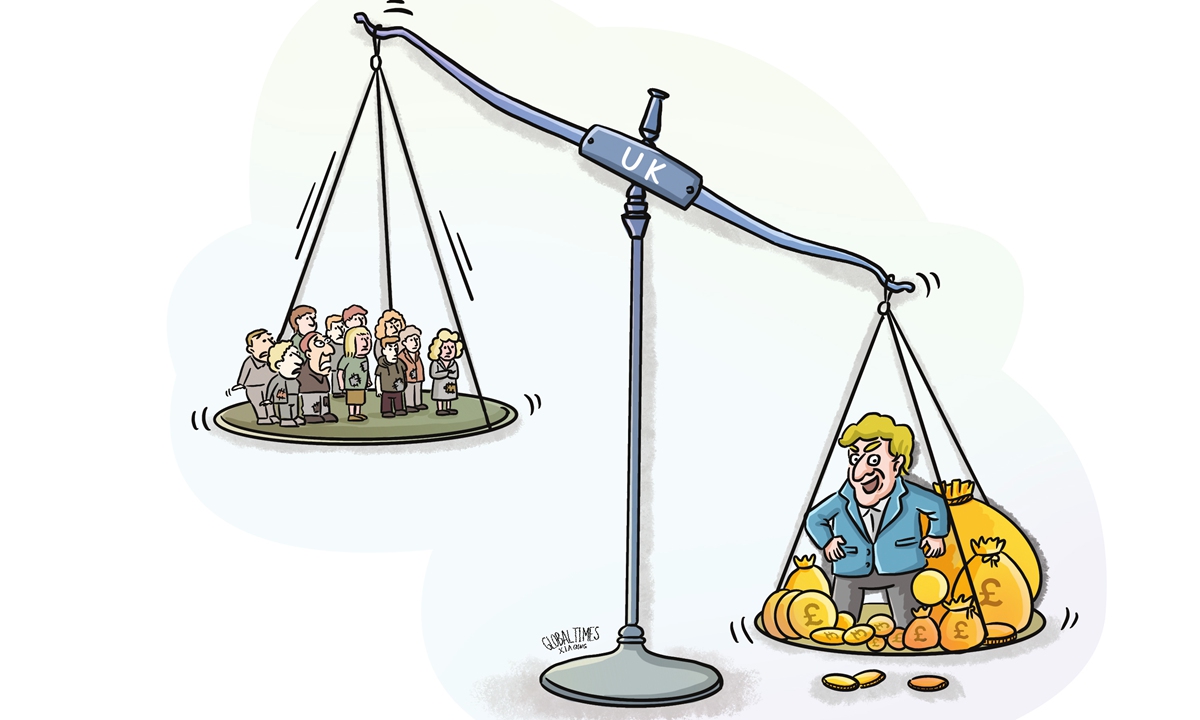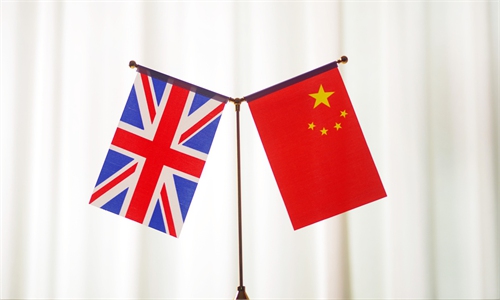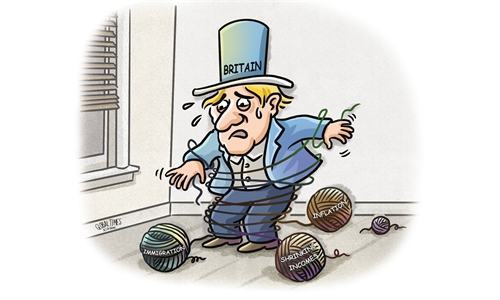Britain is run by the rich for the rich while the biggest growth industry is poverty

Illustration: Xia Qing/GT
Three damning charity reports have revealed that Britain is on the crest of a tsunami of extreme hardship not seen in many generations, and there seems to be no plan to help those likely to be swamped by the wave.British politicians like to claim that the United Kingdom's £2.2 trillion ($2.68 trillion) economy is the sixth largest in the world, and that this is proof of its robust health. Maybe it is, for some. For others, it means nothing. In one of the richest countries on the planet, with 171 billionaires to its name, which is run largely by millionaire politicians, the spoils of this substantial economy are doled out increasingly unevenly. We have become a land of the haves and the have-nots, and it is only going to get worse. Extreme hardship used to be rare, but now it is commonplace.
The stark differences are graphically shown by the contrasting lifestyles at the two extremes. The UK is not only home to an astonishing number of mega-rich individuals, but also the cradle of a pitiful phenomenon that should shame any developed nation: child bed poverty. In Britain today, more than a million children are not able to get a comfortable night's rest, with hundreds of thousands sleeping on the floor.
While the economy bumps along on the bottom, Sunak and Chancellor of the Exchequer Jeremy Hunt are wedded to the notion that growth is the best way to revive the economy, and growth is the best way to help the poor by making their money "go further." What about those who don't have any money, or next to none? The poor cannot afford to wait.
The anniversary of Sunak entering Downing Street this month was marked by a new measure allowing bankers to earn unlimited bonuses. These were capped in 2008 to deter risky financial dealings which caused the financial crisis. Now the cap is lifted and they can pay themselves billions. It is deliberately calculated to help the rich, and is a slap in the face for Britain's poorest, whose worsening plight has just been highlighted by three damning reports by separate charities, showing that deprivation is rampant and the government has no plan to tackle it.
Destitution is just about the lowest metric available to measure how far below normal living standards people are falling. The respected Joseph Rowntree Foundation has reported that 3.8 million people - a million of them children - are destitute, in the direst state of poverty, unable to afford to stay warm, dry, clean and fed. Even working families or those on benefits depend on food banks to survive. The study blamed dwindling state support and soaring energy and food inflation. Last year, another report found 14.4 million people were living in poverty - those in destitution are the poorest of the poor, and their numbers have more than doubled over the past five years.
A report from the charity Buttle, which helps children in need, told of how youngsters with no shoes, resort to stealing food in order to survive, and suffer from mental illness caused by living in dark and cold houses because their parents cannot afford to turn on the heating. A common cause was local authority support being lost due to cutbacks, and a lack of any government child poverty strategy.
Barnardo's, one the UK's longest-established children's organizations, reported more than a million children - about one child in every nine - are now affected by "bed poverty": 700,000 having to share a bed with siblings or parents and 440,000 sleeping on the floor because the family income is swallowed up by rocketing fuel, housing and food prices. For these children, a bed is a luxury.
Inequality, tragically, is a feature of life all around the world. What makes this exceptional in the UK is that it seems to have been created deliberately to funnel the common affluence of the nation into the hands of those who already have more than enough. In a sadistic reversal of a well-known saying, they are robbing the poor to give to the rich.
The author is a journalist and lecturer living in Britain. opinion@globaltimes.com.cn


